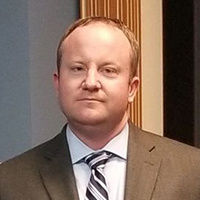Monroe Juvenile Law Lawyer, Michigan
Sponsored Law Firm
-
 x
x

Click For More Info:
-
Hannawa Law PC
2909 E Big Beaver Rd Troy, MI 48083» view mapCriminal Defense Law Full-service legal experts on your side.
Whatever the specific details of your situation may be, our attorneys are ready to fight for you and guide you through every step of the process.
248-466-0770
Kenneth A. Thompson
✓ VERIFIEDCriminal, Traffic, Juvenile Law, Personal Injury, Estate
Kenneth A. Thompson was born in Michigan in 1980. He grew up in Westland, Michigan with his mother and sister after losing his father to a heart attac... (more)
Richard M. Halprin
✓ VERIFIEDCriminal, Family Law, Juvenile Law, Litigation
As an experienced attorney and district court magistrate, Richard Halprin has cultivated a network of relationships within the legal community, includ... (more)
Rebecca Lyn Hicks
Juvenile Law, Employment, Family Law, Criminal, Bankruptcy
Status: In Good Standing Licensed: 15 Years
George E. Long
Landlord-Tenant, Family Law, Juvenile Law, Criminal, Insurance
Status: In Good Standing Licensed: 9 Years
Steven C. Bullock
Family Law, Divorce, Juvenile Law, Criminal
Status: In Good Standing Licensed: 39 Years
Gregory Joseph Calabrese
Commercial Real Estate, Family Law, Juvenile Law, Children's Rights
Status: In Good Standing Licensed: 12 Years
 Nickolas Hannawa Troy, MI
Nickolas Hannawa Troy, MI AboutHannawa Law PC
AboutHannawa Law PC


